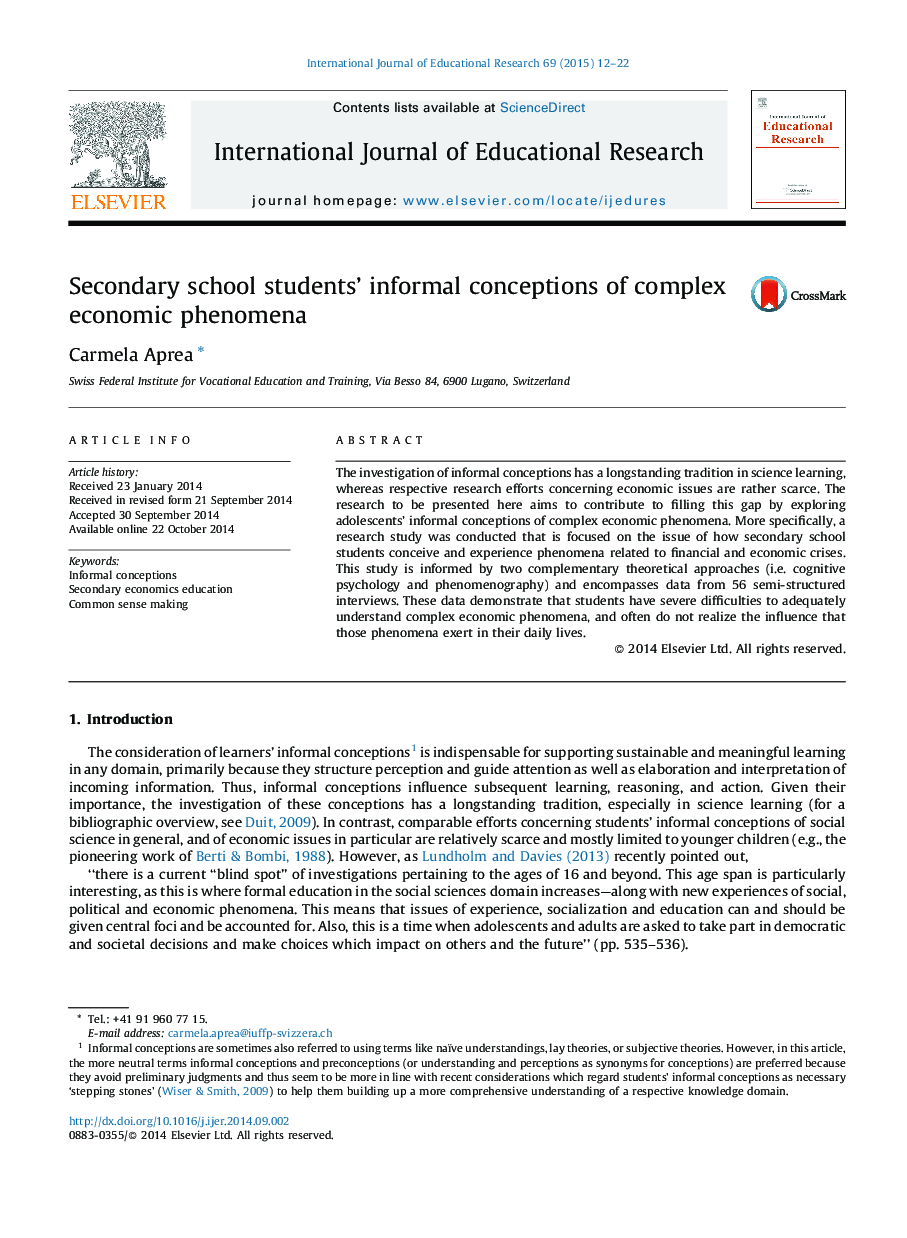| Article ID | Journal | Published Year | Pages | File Type |
|---|---|---|---|---|
| 356926 | International Journal of Educational Research | 2015 | 11 Pages |
•Secondary school students’ informal conceptions of the financial and economic crisis are explored.•The study is informed by cognitive psychology and phenomenography.•Students have difficulty to conceptualize the causes and the transmitting mechanisms of the crisis.•Their awareness of the existence, characteristics and consequences of the crisis differs.•Implications for the design of formal curricula and instruction are discussed.
The investigation of informal conceptions has a longstanding tradition in science learning, whereas respective research efforts concerning economic issues are rather scarce. The research to be presented here aims to contribute to filling this gap by exploring adolescents’ informal conceptions of complex economic phenomena. More specifically, a research study was conducted that is focused on the issue of how secondary school students conceive and experience phenomena related to financial and economic crises. This study is informed by two complementary theoretical approaches (i.e. cognitive psychology and phenomenography) and encompasses data from 56 semi-structured interviews. These data demonstrate that students have severe difficulties to adequately understand complex economic phenomena, and often do not realize the influence that those phenomena exert in their daily lives.
